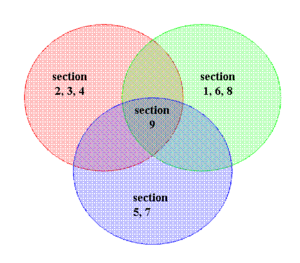General items
The proteins:
This is a real life research project. Neither Thomas/Bostjan nor the tutors do know much (-as a matter of fact- anything) about your proteins and you will become the expert on your target throughout this elective. What Thomas/Bostjan and the tutors can help you with are the methods on how to research your target protein, and trouble shoot if things dont work as expected. Remember each protein is different. Some are harder to work with some are easier, but for each of the targets there are a lot of analyses to be done and much to be discovered. If it turns out that you chose a difficult target protein, DON'T WORRY! The marking will take into account the difficulty of your target protein (and actually in my experience people working on more difficult tasks often do better and get better marks). The marking will not be a check list where we simply tick of programs you used, or how much data you dump onto the Wiki. It's all about integration of data and results, and about producing a good scientific story.
Working teams:
You are working in a team where the work load and expertise is shared. A team of three will research a target protein, and while each team member is performing its own tasks, communication within a team and between teams is essential (remember that a large emphasis in the marking is integration). A logical division of tasks is that one member takes the expert role for biological function and literature review, the second will be the leader of the sequence analysis, and the third will be responsible for structural studies. Of course the three areas are strongly intertwined and you must work together by exchanging ideas and knowledge on a regular basis. A possible devision of tasks (according to the different sections in these instructions) is illustration with this Ven diagram:
Putting all your findings onto the Wiki while you go will facilitate collaboration in the team and also in the whole group. It will give everyone a chance to see what everyone else in the group has done, and give feedback or ask questions. Also remember that other teams will do similar tasks and may already have more experience with that particular task than you have. This elective is not a competition between the teams and you will actually be rewarded for also contributing to other teams' work. Discuss work between teams and collaborate as much as possible! This will only raise the overall standard of the work.
The Wiki:
The final Wiki page must be in the format of research paper (for more details see section 9). Only use your own material on the final Wiki page. Do not plagiarise material (e.g. copy figures or text unless they are public domain. Ask if you are in doubt). If aspects of an already published material are important for your work, you can re-generate figures in modified form and acknowledge the original reference.
Intermediate working Wiki pages are a completely different story. These are kept to save your files, help you organise your outputs/results and promote exchange of ideas/collaborations. In the interest of everyone keep them organised. You will find that they often grow into the final pages or supplementary information to the main paper (then the rules above apply!)
Scholarships:
Every work that has the potential to be brought to publication in a 4-6 week stint during the winter break will receive a $500 scholarship to complete the work.
--ThomasHuber 16:27, 25 April 2007 (EST)
